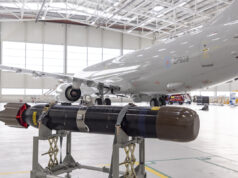Russian President Vladimir Putin’s July 30th decision to expel 755 U.S. diplomats is the logical result of another senseless sanctions bill.
Yes, Putin’s regime is authoritarian by Western standards. And yes, Moscow most likely interfered in the 2016 U.S. Presidential elections. But will sanctions “punish” Putin, or will they only edge our two countries closer to catastrophic war?
A better approach to countering Russian aggression lies in supporting Chinese ambitions in Eurasia, the continent encompassing Europe and Asia. At first, this may sound counterintuitive, but the case for this approach can be found in Graham Allison’s recently published “Destined for War.” Although he argues that China’s rapid rise makes war with America more likely, Allison’s data suggests that something else may be around the corner: a Sino-Russian conflict.
Allison and his team studied the past five hundred years and noticed 16 cases where a rising power threatened a ruling power. 12 of the cases resulted in war. A close inspection reveals that in nine of the wars the ruling and rising powers shared the same landmass.
Additionally, in three of the four cases where war has been averted, a body of water separated the ruling and rising powers. And in one case of war, the rising power (France in the late 18th to early 19th centuries) fought its territorial neighbors (Russia, Prussia, Austria, Spain) rather than the ruling power (the United Kingdom), separated by a relatively narrow body of water. Allison’s data, therefore, suggests that the rise of China is bound to create more pressures on its relationship with Russia, sharing a common border, than the United States, a Pacific Ocean away. Russia views itself as the ruling power in Eurasia, and in many ways it is.
It still maintains the world’s largest nuclear arsenal, an experienced military, and close relations with many of the countries that China is pursuing. In recent years it has willed its way into Ukraine, Georgia, Estonia, and elsewhere. Other countries in the region that never underwent democratic revolutions (Belarus and Kazakhstan) are essentially under Moscow’s rule. Countries from India to Iran and Syria, from Central Asia to Western Europe, still rely on Moscow for energy, protection, or military aid. The Kremlin will do all it can to protect its primacy in Eurasia.
“Rising China” resides on the same Asian landmass, and poses the greatest immediate threat to Moscow. Beijing’s “One Belt, One Road” policy, creating a “new Silk Road,” will bulldoze its way through countries such as Kazakhstan, Kyrgyzstan, Uzbekistan, and Iran – all strategically aligned with Moscow. If down the line any of these countries shift their strategic orientation towards China, choosing a policy favourable to Beijing over Moscow to placate Chinese demands, will Russia simply stand on the sidelines?













Russians have far more in common with us than the Chinese, strengthening them to do down Russia is about as smart as helping the Mujahideen damage the Soviets. You reap what you sow.
Good article. If China wants to expand it’s Political, Economic and Military reach it will face very similar choices as Japan in the thirties. North West or South West. They may choose based on a simple principle risk/cost versus gain. South West scores high on both North West low on both. It will depend on how much they’re willing to gamble.
For all of our current squabbles the single most idiotic move would be to strengthen China. What did we have a Cold War for if we do this. China is still ruled by a communist oligarchy that is completely totalitarian. The only thing opening up its economy has accomplished has been to subsidize the worlds largest police state in history. Why on God’s green earth would it ever be a good idea to strengthen a government like that?
Furthermore Russia only moved on Ukraine when it viewed that its interests there were under threat. After all how likely would a Ukraine in the EU an NATO allow the Black Sea fleet to remain based there? And if you were Russia and one Vladimir Putin would you trust EU and NATO assurances that forces that would now be based by them there were only defensive in nature? Most of those NATO and EU counties had just been playing a game of regime change in the middle east and, to Russia’s point of view Ukraine. Now would you under any circumstances therefore allow NATO/EU forces to base only a few hundred miles from your capital?
China however has been aggressively trying to expand its influence in the Pacific. Building artificial islands bullying Taiwan. Waging an economic war on South Korea and continuously violating Japan Air Defense Cordon. The only people who could possibly think this is a good idea either benefit directly Ukraine or just want somebody else do to once again do the dying for them so will compromise one again all good sense.
Stop reprinting muck from other defence blogs.
The insanity of assisting the Beijing dictatorship in their aggression towards their neighbours is just that.
This idiotic article deserves the scorn and contempt of previous replies. It is utter balderdash.
I think we should be trying harder to develop a positive relationship with Russia. This current situation whereby we indefinitely suppress that nation through crippling sanctions is unfair and may be counterproductive in the long term. Trump is right to think there is the potential for an improving relationship. We are much further from being able to rationalize our way to lasting peace with China but it is encouraging to see that Trump gets along well with President Xi. China is that emerging power that has not proven itself in battle. I struggle to think of an emerging superpower that has not engaged in conflict with the encumbents. The one example may be the USA as it emerged from WWII as the leader of the free World having assumed that mantle from the U.K. The only way we will live out our lives without major conflict with China and/or Russia is to seek genuine friendship with those nations. Sorry about the pontificating… been wanting to say that for a while.